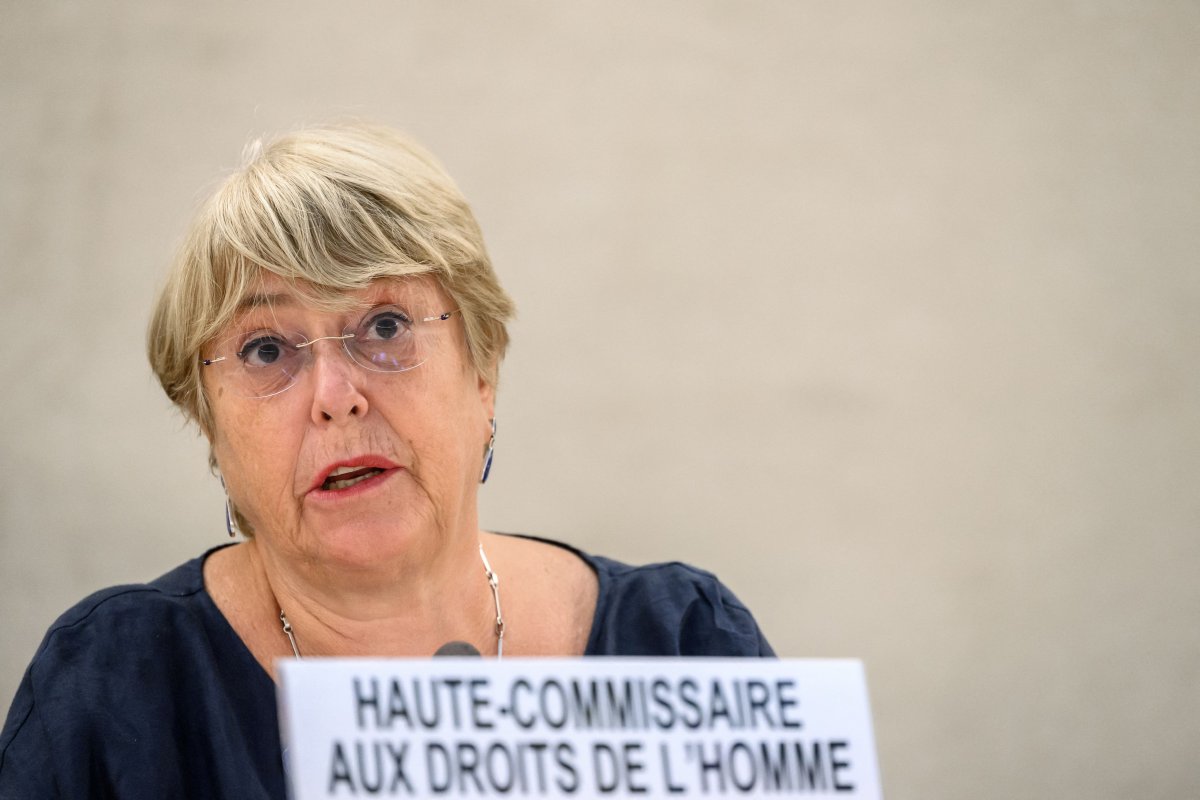The top human rights official at the United Nations expressed regret on Monday at having failed to secure a visit to Xinjiang three months after saying she planned to verify reports of China's alleged violations against Uyghurs and other minority groups.
Michelle Bachelet, who is the UN High Commissioner for Human Rights, has ordered an independent report into conditions in the region—based on available evidence—and suggests it will be published regardless of whether she manages to conduct her own inspection.
At the top of the 48th session of the Human Rights Council on September 13, Bachelet hinted that she was watching closely a new human rights "action plan" released by China—a newly elected council member—to address environmental issues and responsible business practice.
Concluding her reference to China, she added: "I regret that I am not able to report progress on my efforts to seek meaningful access to the Xinjiang Uyghur Autonomous Region."
"In the meantime, my Office is finalizing its assessment of the available information on allegations of serious human rights violations in that region, with a view to making it public by the end of the year."
The Chinese government initially denied the existence of mass detention centers in the country's northwest, where researchers and independent investigative reports say close to 2 million Uyghurs and other mostly Muslim members of minority ethnic groups remain interned against their will.
The vast facilities were later confirmed by Beijing as "re-education" camps, which it claims to be using as part of a prolonged counterterrorism campaign to "deradicalize" and assimilate its Muslim population.
In July, a government white paper said conditions in Xinjiang were not only better and its residents happier than before, the region was also experiencing an "optimal period of development" thanks to the Communist Party of China and its leader, Xi Jinping.
At the start of the previous Human Rights Council session in June, Bachelet first expressed her desire to personally evaluate conditions in Xinjiang, "particularly as reports of serious human rights violations continue to emerge."
Bachelet, who also touched on conditions in Hong Kong, said she hoped to conclude the inspection before the end of the year. The Chinese government criticized the UN official for "making erroneous remarks."
China's Foreign Ministry said it had already invited Bachelet to visit China and Xinjiang but laid out its condition for granting access.
"We have made our position clear on several occasions. The visit should be a friendly one for the purposes of promoting exchange and cooperation, and not to conduct an investigation under the presumption of guilt," ministry spokesperson Zhao Lijian told reporters.
"We oppose any political manipulation and the use of this issue to pressure China," he added.
China continues to deny reports of human rights abuses in the region, which it says are fabricated lies. Observers have noted the sensitivity of Xinjiang to China at a time when the country is carefully curating its image ahead of the 2022 Winter Olympics in Beijing—an event that has the potential to give China a significant soft power win.
Last week, more than 200 human rights groups called on companies including NBC and the BBC to cancel deals to broadcast next year's Beijing "Genocide Games." In an open letter to top executives, campaigners said the broadcasters were "at serious risk of being complicit in China's plan to 'sport wash' the severe and worsening human rights abuses and embolden the actions of the Chinese authorities."

Uncommon Knowledge
Newsweek is committed to challenging conventional wisdom and finding connections in the search for common ground.
Newsweek is committed to challenging conventional wisdom and finding connections in the search for common ground.
About the writer
John Feng is Newsweek's contributing editor for Asia based in Taichung, Taiwan. His focus is on East Asian politics. He ... Read more
To read how Newsweek uses AI as a newsroom tool, Click here.








